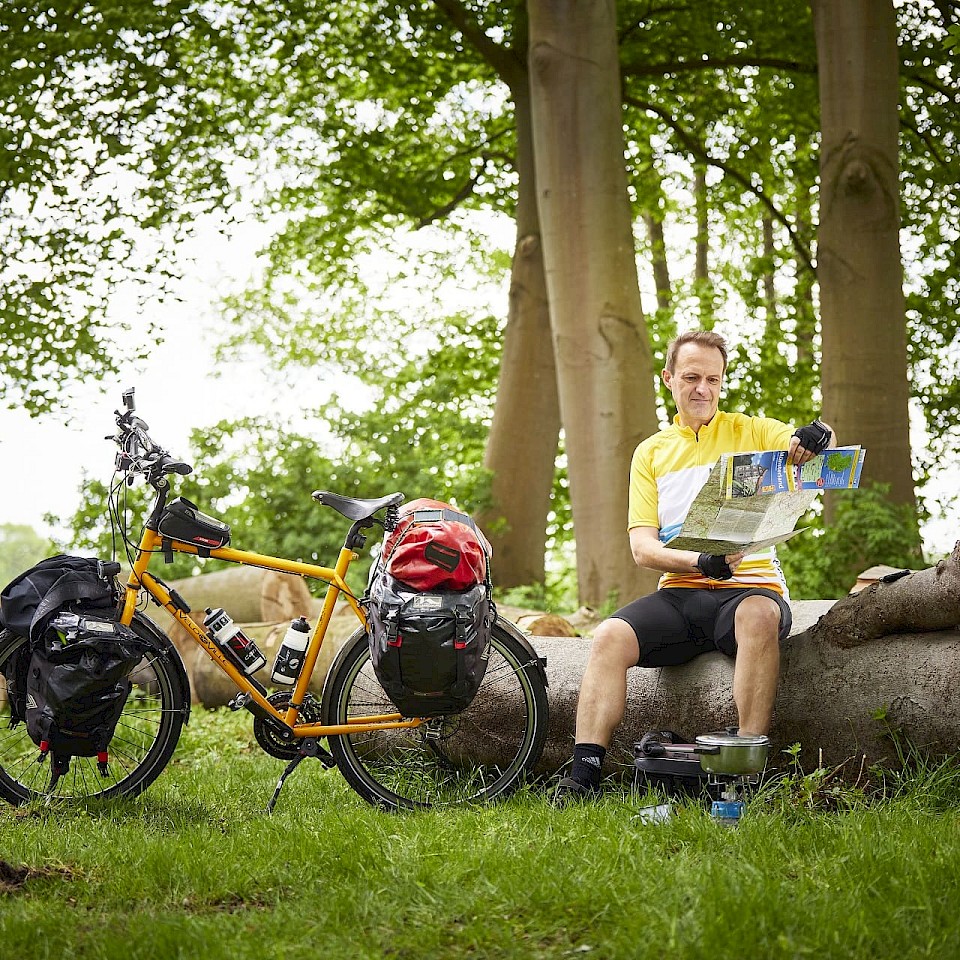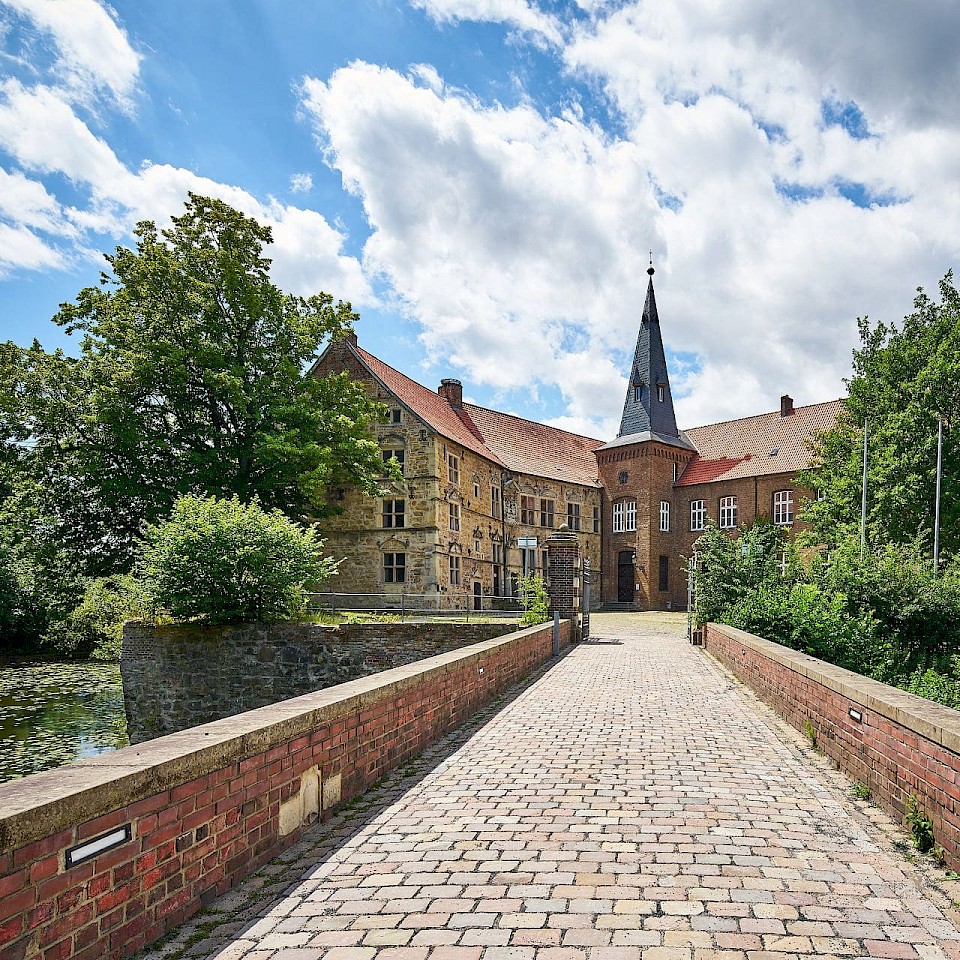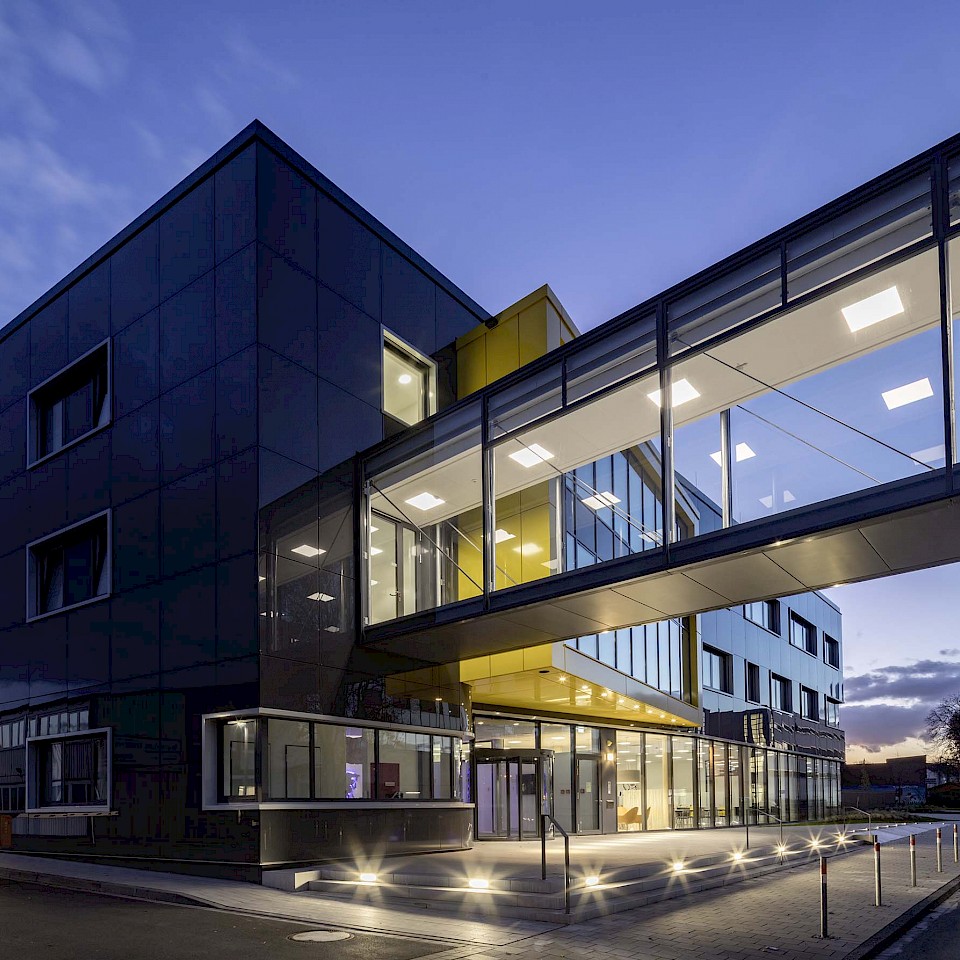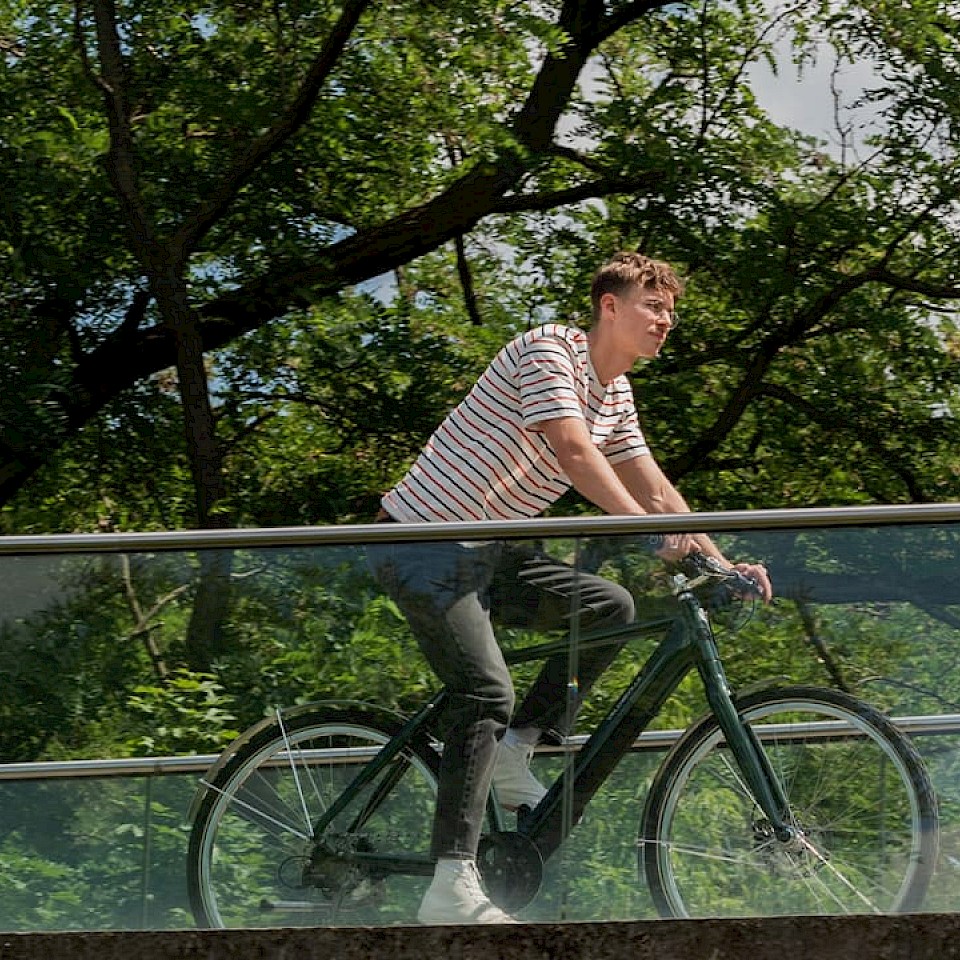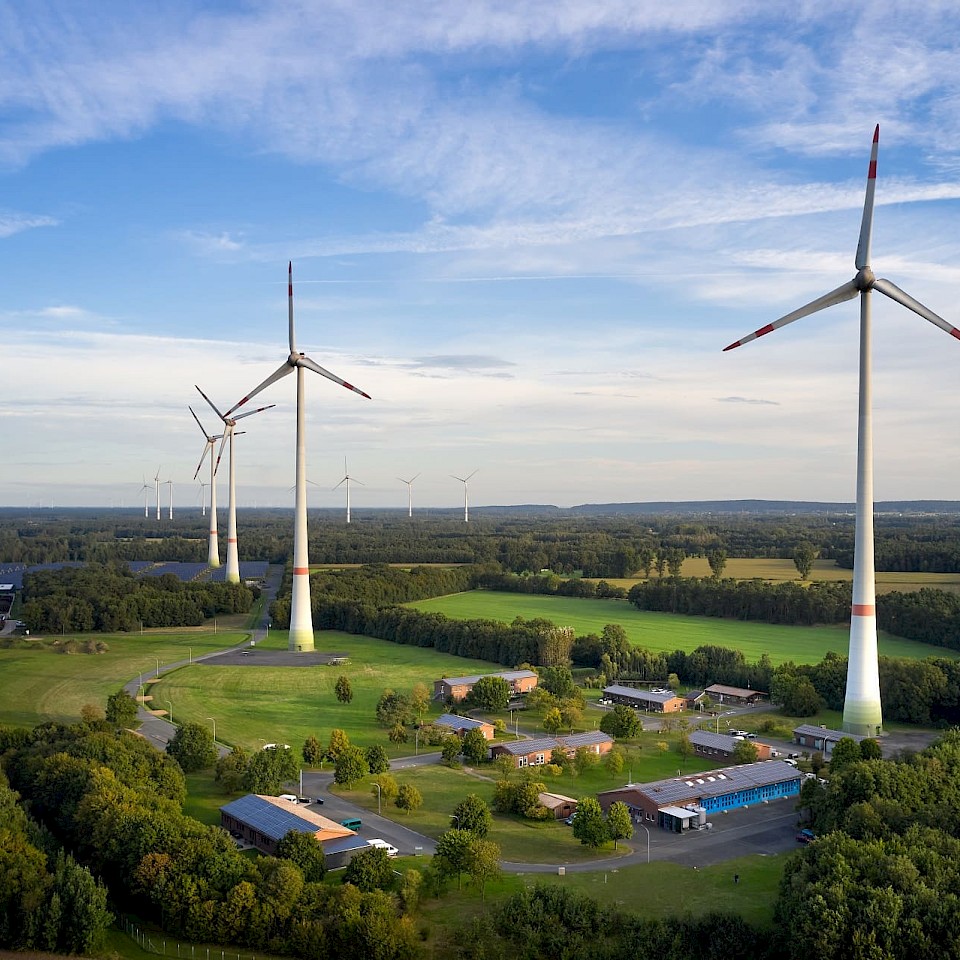Portrait of Volker Thiemann

© Münsterland e.V./Philipp Fölting
Velo de Ville - specialists for special requests
If you have your own ideas in mind and don't want to settle for standards, you have to pay for them. This basic rule applies almost everywhere. However, there is an exception for bicycles and e-bikes. In Altenberge, Velo de Ville has set itself the task of manufacturing bicycles according to customers' individual ideas - at an affordable price. Custom-made in Münsterland, you could say. In this interview, Managing Director Volker Thiemann explains how this works.
"The many customisation options - that's our DNA"
Mr Thiemann, the origins of Velo de Ville date back to 1966. When you look back on the history of your company: What were the most important development steps on the way to becoming the brand you are today?
We started out as a pure wholesaler. In 1982, we made a particularly important strategic decision when we acquired a large plot of land in Altenberge. This was the step away from wholesale towards our own assembly and production. Right from the start, we focused on what characterises us today: custom-made bikes that take into account the individual wishes of our customers. Exactly what is known today as "custom-made".
What was the situation like on the bicycle market at the time?
It's hard to imagine today. Back in the eighties, almost everyone "had to" have a 28-inch bike. There was a standard size, regardless of whether I was 1.50 or 2 metres tall. We tried to break this up with different frame heights. In 1993, we completely abandoned the wholesale trade and concentrated on our own production. Five years later, we built our own powder coating facility. This allowed people to choose from 20 to 30 colours. All of this has given us a great deal of flexibility.
The "custom-made" concept really emerged very early on at Velo de Ville.
That's definitely the case. I would even say we were the first. We grew up with it and initiated many processes that make this individualisation possible. Today, our customers can put together their own bike using a configurator, take it to one of our specialist retail partners and get further advice there. We don't have exorbitantly high prices. This is called "customised mass production" - a very individual form of assembly line assembly with many processes that enable us to incorporate our customers' ideas.
The Münsterland region is known throughout Germany as a cycling centre. Have you also benefited from this as a company?
It's always good when you can build on a strong domestic market. In this respect, the affinity that people here have for bicycles has certainly helped us. In addition, it is of course easier to gain a foothold with the e-bike in rural areas than in urban centres.
"The Cargobike FR8 is packed with engineering expertise."
You recently presented the FR8, a cargo bike that was developed in cooperation with Münster University of Applied Sciences, including at the university's Steinfurt site. How did this collaboration come about?
It was the case that students at the UAS wanted to design and produce a Cargobike as part of their bachelor's thesis. We found this very interesting and agreed to do it. The students had done extensive preparatory work in advance, conducted interviews with users and even accompanied 16 families through their everyday lives in order to gain important insights for the construction of the bike. Incidentally, the student responsible for the design of the FR8 now works for us as a designer.
What is so special about the FR8?
The modular system enables different applications. You can configure it exactly as you need it: with a bench seat for children, a box with and without a lid or a loading area with tensioning straps. The bike grows with its tasks. When the children grow up, you can simply turn it into a transporter. A lot of engineering expertise has gone into this project. The customisation options - that's our DNA.
This DNA is also lived and characterised by qualified employees. A special feature of Velo de Ville is that you employ a comparatively large number of people with disabilities in your company. How did this come about?
Our main priority is to create a diverse and inclusive team. In this context, we are particularly proud of the fact that we currently employ around 10 per cent of people with disabilities through our collaboration with the Westphalia-Lippe Agricultural Association. These employees are an essential part of Velo de Ville and are initially carefully introduced to working for us, for example through internships subsidised by the LWL. We are convinced that a diverse team broadens our innovative strength and horizons. The integration of people with disabilities is an enrichment for our company, as their different skills and perspectives bring a breath of fresh air to our team.
Can you give some examples of this?
It is the small but meaningful moments of daily interaction that show how successful our efforts are in terms of inclusion. For example, when colleagues learn sign language so that they can communicate more effectively with other colleagues. By working together, a harmonious and inclusive working atmosphere can be created in which everyone can realise their full potential.
As a professional cyclist and Münsterlander, what do you think of the cycling infrastructure here in the region?
I have to say that the cycle path system works really well here. I recently travelled by bike in another region, where things didn't run nearly as smoothly. The tourist highlights are well developed. You can get from one place to another without any problems, often on wide cycle paths - ten years ago it was very different. The many Pättkes and the small paths through the villages are great fun. But if you cycle on a Sunday when the weather is nice, there's a lot going on on the roads. And then I think to myself: maybe now is the time to take the next step. Perhaps it would also make sense to realise another real flagship project for the Münsterland cycling region.
What are your favourite routes when you're out and about on your bike in Münsterland?
The 100 Castles Route is of course a classic, but we also have some great routes in the immediate vicinity. The Rieselfelder north of Münster, for example. But I also love cycling in the Baumbergen or in the area around the Pleistermühle.
Thank you very much for the interview and have a safe journey!
Velo de Ville is a bicycle manufacturer based in Altenberge. The family business is managed by the brothers Volker and Alain Thiemann. Together with 150 employees, they are working to shape the mobility of tomorrow. Velo de Ville sells its products throughout Europe and has its own sales teams in many European countries. The company now sells 80 to 90 per cent e-bikes.






